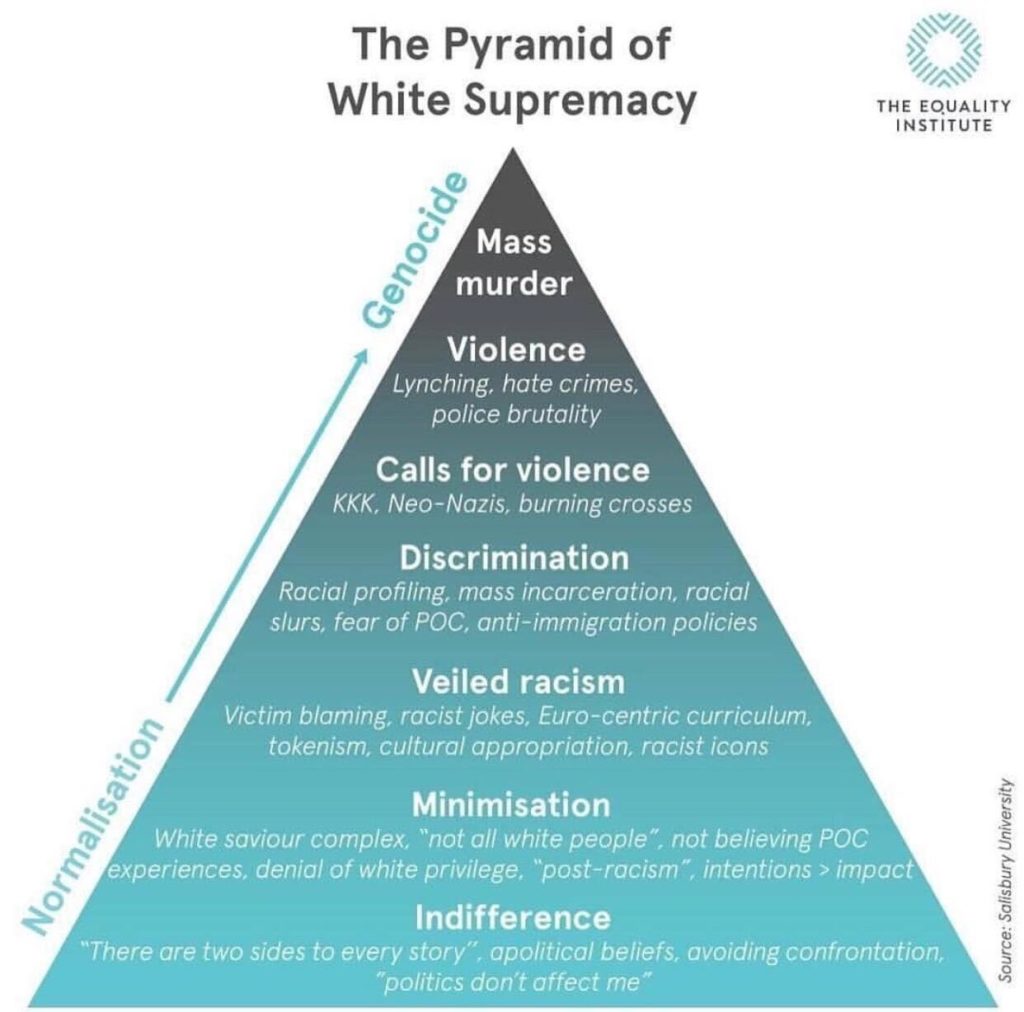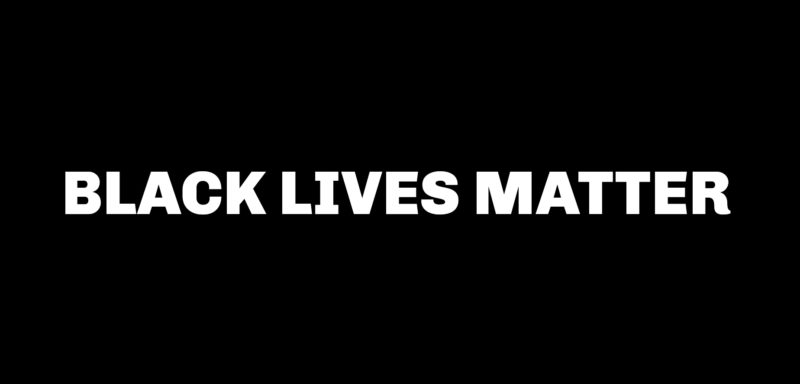Here is an unfinished compilation of resources for those looking to join the movement toward a more equitable society, and/or seek support during traumatic events. This list will be updated regularly.
If you would like to purchase any books from this list, please consider purchasing from one of the black-owned bookstores listed here.
Resources for coping with trauma and oppression:
https://www.huffpost.com/entry/an-open-letter-to-black-women-about-mental-health_b_7662862 “An open letter to black women about mental health from author, writer, and licensed psychotherapist Minaa B.”
https://blackmentalhealth.com “The Black Mental Health Alliance is working to develop, promote and sponsor trusted culturally-relevant educational forums, trainings and referral services that support the health and well-being of Black people and other vulnerable communities.”
https://therapyforblackgirls.com “Therapy for Black Girls is an online space dedicated to encouraging the mental wellness of Black women and girls. Dr. Joy Harden Bradford is a licensed psychologist, speaker and the host of the wildly popular mental health podcast, Therapy for Black Girls.”
https://www.therapydecolonized.com – Bryanna Boyd is a black, queer therapist in Seattle. “You deserve to see yourself reflected in your care. I offer competent, comprehensive and compassionate psychotherapy to those of us most marginalized. If you’re looking for a nurturing therapist who is genuine, who wants you to have a good life and will challenge you from a place of respect and care, then we might be a good fit.” Their website also contains additional resources for anyone seeking them.
https://ourselvesblack.com – “Narratives matter. Positive self-image, family bonds, strong communities, and a sense of security are fundamental to mental health. For black people, each has been not merely undermined but at times outright attacked by the predominant narratives in place since this country’s inception.
The fight for mental health is real. And necessary.” An online magazine centered around mental health in the Black community.
https://www.nami.org/help – Call the National Alliance on Mental Illness hotline to locate a support group in your area, resource referrals, and more.
http://www.thesiweproject.org – “The Siwe Project is a global non-profit dedicated to promoting mental health awareness throughout the global black community. The goal of the organization is to widen the public dialogue regarding the lived experiences of people of African Descent with mental illness. By providing opportunities for dialogue and the uplifting of new narratives and discourse, The Siwe Project aims to encourage more people to seek treatment without shame.”
A Master Thread of Lawyers Donating/Offering Their Services:
Resources to learn more about being anti-racist :
WHAT IS SYSTEMIC RACISM?
By Race Forward (@raceforward)
“What is Systemic Racism” is an 8-part video series showing how racism shows up in our lives across institutions and society. Featuring Jay Smooth, produced by Kat Lazo, introduced by Rinku Sen.
https://www.raceforward.org/videos/systemic-racism
ME AND WHITE SUPREMACY
Sparked by an Instagram challenge, Layla F. Saad (@laylafsaad) authored this resource for recognizing and examining white privilege, and understanding and changing behaviors or actions that (even unconsciously) uphold white supremacy. It’s a book that requires work, not just reading.
https://www.meandwhitesupremacybook.com/
WHITE FRAGILITY
White Fragility is a state in which even a minimum amount of racial stress becomes intolerable, triggering a range of defensive moves. This book by Robin Diangelo (@diangelorobin) explicates the dynamics of White Fragility and how we might build our capacity in the on-going work towards racial justice.
Throughline
A weekly NPR podcast hosted by Rund Abdelfatah & Ramtin Arablouei – “The past is never past. Every headline has a history. Join us every week as we go back in time to understand the present. These are stories you can feel and sounds you can see from the moments that shaped our world.” – NPR
https://www.npr.org/podcasts/510333/throughline
Code Switch
A weekly NPR podcast hosted by Shereen Marisol Meraji and Gene Demby – “What’s CODE SWITCH? It’s the fearless conversations about race that you’ve been waiting for! Hosted by journalists of color, our podcast tackles the subject of race head-on. We explore how it impacts every part of society — from politics and pop culture to history, sports and everything in between. This podcast makes ALL OF US part of the conversation — because we’re all part of the story.” – NPR
https://www.npr.org/podcasts/510312/codeswitch


From The Guardian:
“For years, racism has been defined by the violence of far-right extremists, but a more insidious kind of prejudice can be found where many least expect it – at the heart of respectable society” from Reni Eddo-Lodge’s piece Why I’m No Longer Talking to White People About Race (@renieddolodge)
Click below to read or listen to the entire article in The Guardian.
https://www.theguardian.com/world/2017/may/30/why-im-no-longer-talking-to-white-people-about-race
From Harper’s Bazaar:
“Anyone who has kept any type of pulse on civil rights and the black human condition in the United States since the transatlantic slave trade would understand the need to emphasize the protection of black bodies. The people who have had the luxury of ignoring this particular issue is the white community, which has had the privilege of not questioning—on a large scale—whether the systems they live in are detrimental to their livelihoods, based on their skin color.” from Why You Need to Stop Saying “All Lives Matter” by Rachel Elizabeth Cargle (@rachel.cargle)
Click below to read the entire article in Harper’s Bazaar
https://www.harpersbazaar.com/culture/politics/a27075028/black-lives-matter-explained/
COMING TO TERMS WITH RACISM’S INERTIA: ANCESTRAL ACCOUNTABILITY
When it comes to race relations there is often the argument “Well, I didn’t own slaves,” as a dismissive attempt to separate oneself from the effects and realities of the racial divide in the United States. In this Ted Talk, Rachel Cargle (@rachel.cargle) addresses the modern manifestations of racism in the US.
THE HISTORY OF WHITE PEOPLE by Nell Irvin Painter –
“Telling perhaps the most important forgotten story in American history, eminent historian Nell Irvin Painter guides us through more than two thousand years of Western civilization, illuminating not only the invention of race but also the frequent praise of “whiteness” for economic, scientific, and political ends. A story filled with towering historical figures, The History of White People closes a huge gap in literature that has long focused on the non-white and forcefully reminds us that the concept of “race” is an all-too-human invention whose meaning, importance, and reality have changed as it has been driven by a long and rich history of events.” – (http://www.racialequityresourceguide.org/resource/the-history-of-white-people)
RECONSTRUCTION by Eric Foner –
“Winner of the 1988 Los Angeles Times Book Prize for history, Eric Foner’s “Reconstruction” is a major re-evaluation of the development of the American South from the Emancipation Proclamation of 1863 through the resounding failure of Reconstruction and the legacy of recrimination and racism lasting well into the 20th Century.” – (https://www.latimes.com/archives/la-xpm-1989-04-02-bk-1589-story.html)
FEAR ITSELF by Ira Katznelson –
“Ira Katznelson examines the New Deal through the lens of a pervasive, almost existential fear that gripped a world defined by the collapse of capitalism and the rise of competing dictatorships, as well as a fear created by the ruinous racial divisions in American society. Katznelson argues that American democracy was both saved and distorted by a Faustian collaboration that guarded racial segregation as it built a new national state to manage capitalism and assert global power” – Louis Menand, The New Yorker
A DIFFERENT MIRROR by Ronald Takaki –
“Winner of an American Book Award, A Different Mirror recounts U.S. history in the voices of Native Americans, African Americans, Jews, Irish Americans, Asian Americans, Latinos and others. Ronald Takaki turns the Anglocentric historical viewpoint inside out and examines the ultimate question of what it means to be an American.” – (https://www.zinnedproject.org/materials/different-mirror-multicultural-america)
THE PRICE FOR THEIR POUND OF FLESH by Daina Ramey Berry –
“This book is the culmination of more than ten years of Berry’s exhaustive research on enslaved values, drawing on data unearthed from sources such as slave-trading records, insurance policies, cemetery records, and life insurance policies. Writing with sensitivity and depth, she resurrects the voices of the enslaved and provides a rare window into enslaved peoples’ experiences and thoughts, revealing how enslaved people recalled and responded to being appraised, bartered, and sold throughout the course of their lives. Reaching out from these pages, they compel the reader to bear witness to their stories, to see them as human beings, not merely commodities.” – (http://www.beacon.org/The-Price-for-Their-Pound-of-Flesh-P1227.aspx )
HOW CAPITALISM UNDERDEVELOPED BLACK AMERICA by Manning Marable –
“How Capitalism Underdeveloped Black America is one of those paradigm-shifting, life-changing texts that has not lost its currency or relevance even after three decades. Its provocative treatise on the ravages of late capitalism, state violence, incarceration, and patriarchy on the life chances and struggles of black working-class men and women shaped an entire generation, directing our energies to the terrain of the prison-industrial complex, anti-racist work, labor organizing, alternatives to racial capitalism, and challenging patriarchypersonally and politically.” Robin D. G. Kelley” – (https://www.haymarketbooks.org/books/736-how-capitalism-underdeveloped-black-america)
THE COLOR OF MONEY by Mehrsa Baradaran –
“Baradaran challenges the long-standing notion that black banking and community self-help is the solution to the racial wealth gap. These initiatives have functioned as a potent political decoy to avoid more fundamental reforms and racial redress. Examining the fruits of past policies and the operation of banking in a segregated economy, she makes clear that only bolder, more realistic views of banking’s relation to black communities will end the cycle of poverty and promote black wealth.” – (https://www.hup.harvard.edu/catalog.php?isbn=9780674237476)
WHITE RAGE by Carol Anderson –
“Carefully linking [significant moments in American history]…Anderson pulls back the veil that has long covered actions made in the name of democracy, fiscal responsibility, or protection against fraud, rendering visible the long lineage of white rage. Compelling and dramatic in the unimpeachable history it relates, White Rage will add an important new dimension to the national conversation about race in America.” – https://www.professorcarolanderson.org/white-rage
THE WARMTH OF OTHER SUNS by Isabel Wilkerson –
“Ida Mae Brandon Gladney, George Swanson Starling and Robert Joseph Pershing Foster are among the six million African-Americans who fled the South during what would become known as the Great Migration, a watershed in American history. This book interweaves their stories and those of others who made the journey with the larger forces and inner motivations that compelled them to flee, and with the challenges they confronted upon arrival in the New World.” – (http://isabelwilkerson.com/#aboutthebook)
STAMPED FROM THE BEGINNING by Ibram X. Kendi –
“In this deeply researched and fast-moving narrative, Kendi chronicles the entire story of anti-Black racist ideas and their staggering power over the course of American history. Stamped from the Beginning uses the life stories of five major American intellectuals to offer a window into the contentious debates between assimilationists and segregationists and between racists and antiracists. From Puritan minister Cotton Mather to Thomas Jefferson, from fiery abolitionist William Lloyd Garrison to brilliant scholar W.E.B. Du Bois to legendary anti-prison activist Angela Davis, Kendi shows how and why some of our leading proslavery and pro-civil rights thinkers have challenged or helped cement racist ideas in America.” – (https://www.ibramxkendi.com/stamped-from-the-beginning)
FREDERICK DOUGLASS: PROPHET OF FREEDOM by David Blight –
“The definitive, dramatic biography of the most important African American of the nineteenth century: Frederick Douglass, the escaped slave who became the greatest orator of his day and one of the leading abolitionists and writers of the era.” – (https://www.pulitzer.org/winners/david-w-blight)
EVICTED by Matthew Desmond –
“Evicted transforms our understanding of poverty and economic exploitation while providing fresh ideas for solving one of twenty-first-century America’s most devastating problems. Its unforgettable scenes of hope and loss remind us of the centrality of home, without which nothing else is possible.” (https://www.evictedbook.com/books/evicted-tr)
Last updated: 8/24/2020
Filed Under: who we are
One comment on “Social Justice Resources”
Comments are closed.


Thank you for such an excellent and informative list! I’m consistently in discussion with myself as to if I’m being an ally, or whether I’m using my privilege to speak up for justice…or whether I’m speaking over others. It feels like I’ll be called out for trying and doing it “wrong.” Whatever the case, I know the greatest wrong is keeping silent…